With the recent opening of WebX 2025 in Tokyo, Japan has once again captured the attention of the global crypto market. With the rapid development of blockchain technology and crypto assets, Japan has become a key player in the global crypto market, attracting not only numerous developers and individual investors but also numerous Web3 institutions exploring the future of digital finance. Driven by both technological innovation and risk management, Japan's crypto ecosystem is gradually maturing. According to the 2024 annual report of the Japan Virtual and Crypto Asset Exchange Association (JVCEA), the number of cryptoasset accounts in Japan has exceeded 12 million, with user deposits exceeding 5 trillion yen. The ownership rate of mainstream cryptoassets such as Bitcoin and Ethereum has increased significantly, and institutional investors are increasingly interested in cryptoassets. 57% of respondents believe that cryptoassets will achieve mainstream adoption in the future. Furthermore, public calls for regulatory transparency are growing. These data paint a picture of a market with broad awareness, diverse applications, and clear expectations regarding regulation. Against this backdrop, understanding Japan's cryptoasset tax and regulatory system is both essential for crypto companies to develop compliant practices and crucial for investors to understand market risks. This study will focus on two main areas: the fundamental tax system and the regulatory framework, presenting the interaction between institutions and markets within Japan's cryptoasset ecosystem, aiming to provide readers with a clear overview of Japan's cryptoasset system. II. Japan's Basic Tax System and Tax Treatment of Cryptoassets Japan is a country primarily governed by direct taxation. The main current taxes include: corporate tax, personal income tax, consumption tax, liquor tax, customs duty, inheritance and gift tax, fixed asset tax, and stamp duty. This article will focus on the fundamental tax system and the tax treatment of cryptoassets, particularly those strongly related to cryptoassets. The main types of taxes currently in effect in Japan are listed in the table below: 1. Corporate Tax Japan's corporate tax is levied on income generated by a corporation's business activities and is a broad form of income tax (income tax in Japan is considered personal income tax, as detailed below). Corporations with headquarters or principal offices in Japan are considered resident corporations; all other corporations are considered non-resident corporations. Resident corporations are taxed on all income, regardless of whether it is sourced domestically or internationally, while non-resident corporations are taxed only on income derived in Japan. When calculating taxable income, a company's income is the sum of all sources, with no specific distinction made between different types of income. The standard corporate tax rate is 23.2%. For corporations with registered capital of 100 million yen or less, a 15% rate applies to income up to 8 million yen (however, this preferential rate increases to 17% if the company's taxable income exceeds 1 billion yen). 2. Income Tax Income tax is levied on personal income. In Japan, permanent resident taxpayers are taxed on their worldwide income. Non-resident taxpayers are taxed only on their Japanese-source income. Non-permanent resident taxpayers are taxed on their foreign-source income, excluding foreign-source income not remitted into Japan (which may include, in particular, certain capital gains), and may also be taxed on a portion of their foreign-source income that is paid or remitted into Japan. Japan categorizes taxpayers' taxable income into ten categories, each of which is calculated separately: salary income, interest income, dividend income, business income, real estate income, retirement income, transfer income, forest income, one-time income, and miscellaneous income. (Current Japanese tax law includes personal income from crypto assets as miscellaneous income for income not covered by the first nine categories.) When calculating individual income tax, each person's taxable income should be determined and aggregated. Necessary expenses should be deducted from the income, and deductions made in accordance with relevant regulations should be made to arrive at the taxable income. Finally, the individual's taxable income for the year should be calculated based on the applicable tax rate. The current individual income tax rate table in Japan is as follows: 3. Consumption Tax Japan's consumption tax is levied on businesses when they transfer goods, provide services, or import goods into Japan. The general rate is 10%, but a lower rate of 8% applies to food and beverages (excluding restaurant purchases and alcoholic beverages) and newspaper subscriptions that meet certain conditions. Exports and certain services provided to non-residents are zero-rated. Certain transactions, such as the sale or lease of land, the sale of securities, and the provision of public services, are exempt from tax. 4. Inheritance and Gift Taxes Inheritance tax is a tax levied on property transferred upon death. Inheritance tax applies to various assets, including movable and immovable property, in addition to financial assets such as cash, savings and deposits, and stocks. Individuals who acquire property through inheritance or bequest are subject to inheritance tax. The inheritance tax rate is set for each heir's inheritance above the tax threshold. Progressive rates ranging from 10% to 55% apply depending on the size of the taxable estate. The specific rates are detailed in the table below: Gift tax is levied on property transferred through gift. It generally supplements inheritance tax. In Japan, gift tax combines the value of property acquired through gift within one year, even if the property was acquired from different donors. Individuals receiving property through gift are subject to gift tax. Legal entities receiving property through gift are subject to corporate tax. Gift tax is levied on property acquired through gift. Property here includes all objects and rights that can be the subject of property rights. There are two methods for assessing gift tax: historical taxation and actuarial taxation upon inheritance (a unified inheritance and gift tax system). The historical taxation system applies a progressive tax rate ranging from 10% to 55%.
5. Tax treatment of crypto assets
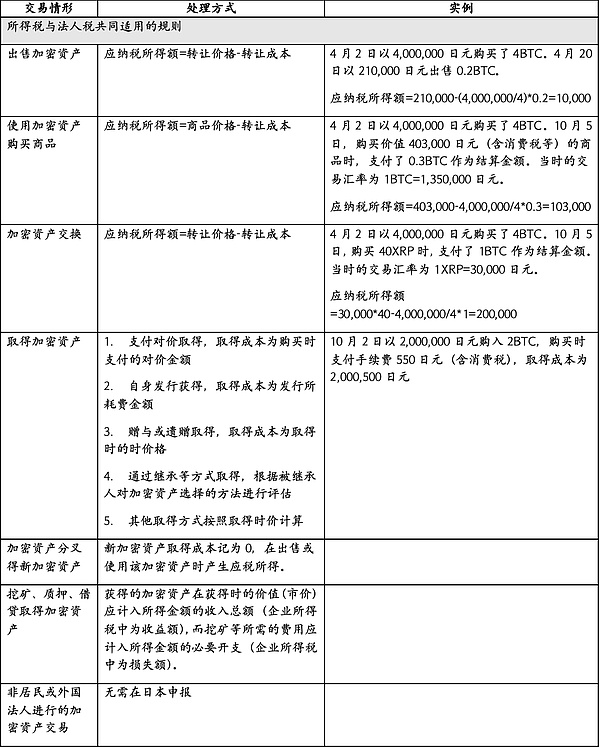
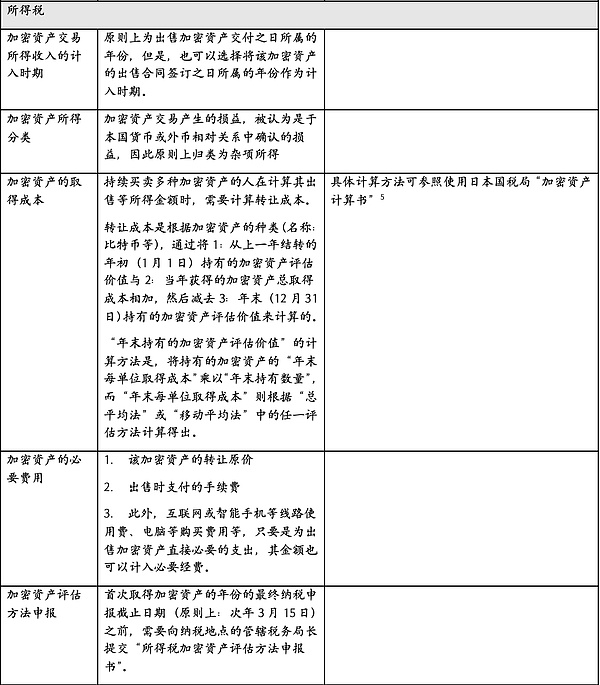
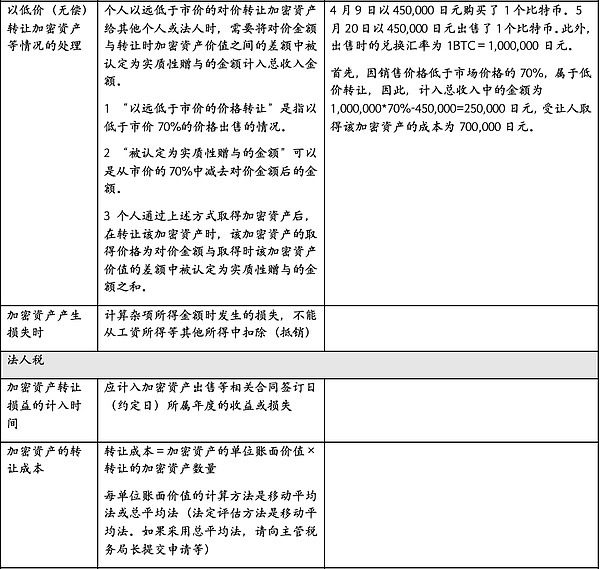
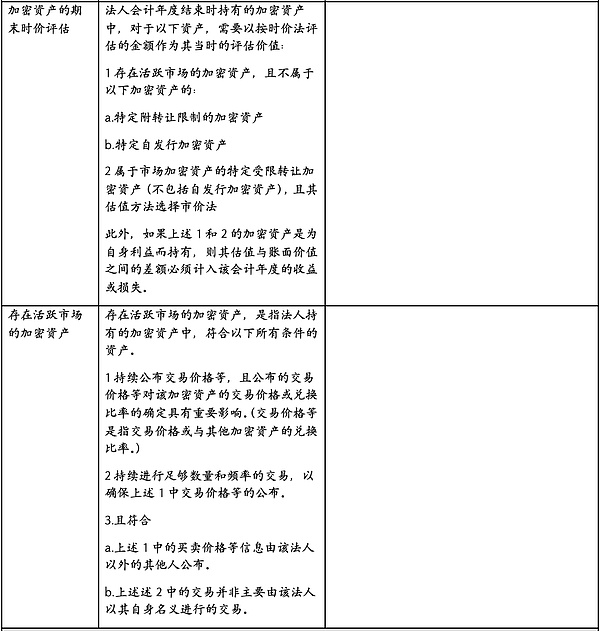
Unlike JVCEA, which focuses on exchanges and regulatory self-regulation, JCBA focuses more on promoting the overall development of the crypto asset industry. JCBA members include diverse institutions such as wallet service providers, blockchain companies, and market participants. The association mainly promotes industry innovation and ecological improvement through industry exchanges, technical research, policy recommendations, and popular education. JCBA plays a bridging role in communicating with regulatory agencies, negotiating tax policies, setting standards, and addressing emerging industry issues. It provides support for industry self-regulation, enhancing consensus between the government and the market, and policy implementation. A division of labor and complementary relationship is formed between the two, jointly promoting the standardized, healthy and diversified development of Japan's crypto asset industry. 2. Legal History Japan was one of the first countries to establish a regulatory framework for cryptoassets (formerly known as virtual currencies). As early as 2016, Japan responded to international anti-money laundering (AML) and countering the financing of terrorism (CFT) requirements by amending its Funds Settlement Act (hereinafter referred to as the "SA"), and also implemented an institutional response to the bankruptcy of domestic operators providing cryptoasset and fiat currency exchange services. This amendment (implemented in April 2017, hereinafter referred to as the "2016 Amendment") established a registration system for relevant service providers and introduced a series of measures, including identity verification upon account opening, full disclosure of transaction terms to users, and the separation of client and proprietary assets, thereby establishing foundational regulations for both anti-money laundering and consumer protection. As the cryptoasset market develops, new risks and issues have gradually emerged, including the misuse of highly anonymous cryptoassets, inadequate internal management by some cryptoasset exchange service providers (hereinafter referred to as "exchange service providers"), incidents of leakage or misappropriation of user-entrusted cryptoassets and funds, and excessive advertising. In response to these developments, Japan revised the PSA and FIEA again in 2019 (the amendments came into effect in May 2020, hereinafter referred to as the "2019 Amendment"). The 2019 Amendment primarily mandates that exchange service providers report changes to the cryptoassets they handle in advance, rather than after the fact; requires, in principle, the use of cold wallets to store user cryptoassets; and establishes regulatory rules for advertising and solicitation. Furthermore, to address new types of trading practices and improper transactions, the 2019 Amendment explicitly includes derivatives trading involving cryptoassets under regulation, and stipulates that ICO tokens that grant profit distribution rights are subject to the FIEA. Furthermore, it prohibits unfair trading practices such as price manipulation. Building on this, Japan amended its PSA Act again in 2022 (effective June 2023, hereinafter referred to as the "2022 Amendment"), introducing the "Travel Rule" in accordance with the recommendations of the Financial Action Task Force (FATF). This rule requires that when an exchange service provider transfers crypto assets on behalf of a user, the identity information of both the transferor and the recipient must be transmitted to the recipient's exchange service provider. In 2025, the Japanese government submitted a draft amendment to the PSA to the Diet (unless otherwise specified, "Amendment" hereafter refers to this draft amendment). These include: empowering regulators to require exchanges to keep assets within Japan to ensure that assets can be returned to domestic users in extreme circumstances such as bankruptcy; and creating a new category of intermediary business that specializes in facilitating the purchase, sale, or exchange of crypto assets.
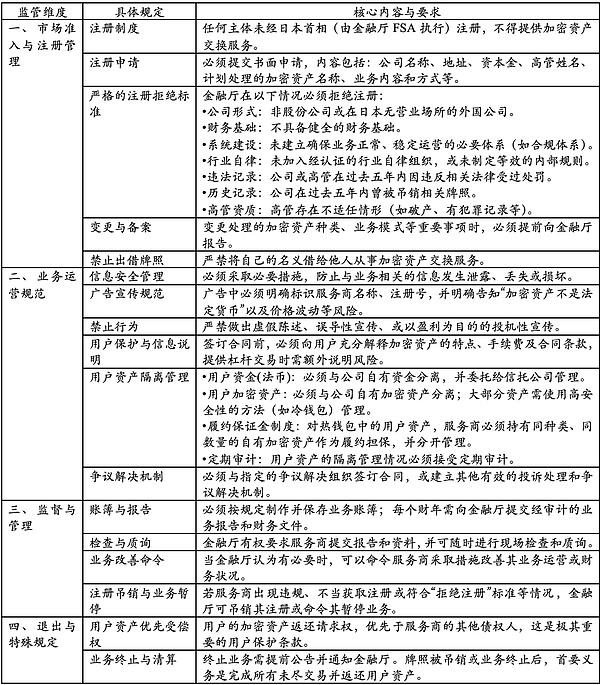
3. Important Rules

In addition, if crypto assets are securities, the Financial Instruments and Exchange Act (FIEA) will be subject to higher requirements for information disclosure and regulations on market manipulation, fraud, and other behaviors.
4. Revision Dynamics
(1) Introduction of Domestic Asset Preservation Orders for Crypto-asset Exchanges
Previously, Japanese authorities were concerned that crypto-asset exchanges handling spot transactions might transfer their assets overseas, thereby harming user interests in the event of bankruptcy. The relevant amendments allow the Japanese government to issue “Asset Retention Orders” to prevent the outflow of such assets and ensure the safety of user assets.
(2) More flexible management requirements for trust-based stablecoin reserves
Previously, stablecoin issuers were required to hold all their reserves in the form of demand deposits. This amendment allows issuers to hold up to 50% of their reserves in the form of low-risk assets such as government bonds or redeemable time deposits. It is expected that this change will enhance the international competitiveness of stablecoins issued by Japan.
(3) New Crypto-asset Brokerage Business Category
Previously, institutions that only engaged in crypto-asset intermediaries were required to register as full exchanges, which had a high entry threshold. The amendment adds a new category of "brokerage business", allowing intermediaries to operate under an independent regulatory framework, lowering the entry threshold, making it more in line with industry reality and helping to promote the entry of new service providers into the market. This measure is consistent with regulatory practices in other financial sectors.
(4) Regulation of cross-border payment services
In the past, cross-border payment services were largely unregulated and did not require a funds transfer business license, but there was a risk of abuse for illegal gambling, investment fraud, etc. The new regulations have strengthened supervision of such services. The core of the new regulations is to combat unregistered illegal funds transfers. For high-risk businesses, consumer protection and anti-money laundering (AML) measures will be further strengthened. All payment services that do not directly facilitate the transaction of goods or services will be included in the supervision of funds transfer business; while low-risk services such as platforms that directly participate in transactions or third-party custodians that are already regulated by other laws are expected to be exempted. Industry groups such as the Japan New Economy Association are concerned that excessive regulation may harm the digital payment industry, and therefore call for the new rules to focus on actual risks and avoid impacting the ecosystem of electronic payment, points settlement, etc. The details of subsequent regulations will be released, and their impact on the industry and innovation needs to be closely monitored. (5) The speed of user refunds will be improved when a fund transfer institution goes bankrupt. In the past, even if the user's assets were guaranteed by a bank or a trust, the refund process still required government leadership and took at least 170 days. The new amendment introduces a direct refund path, allowing banks or trust institutions to return funds directly to users without going through the original procedures. This measure enhances consumer protection and effectively improves the efficiency of financial services, allowing funds to be returned to users faster and more safely when problems arise with the institution.
4. Conclusion
 JinseFinance
JinseFinance












